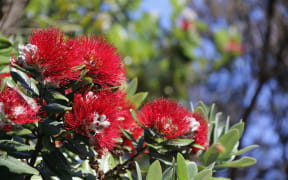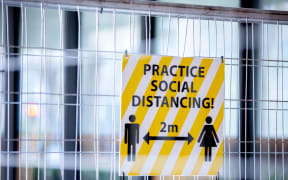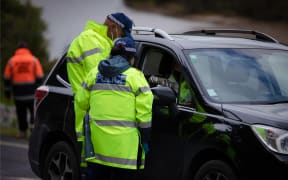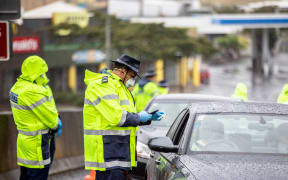Holiday park and camping ground owners are worried about what to do if someone tests positive for Covid-19 during their stay, tourism chiefs say.
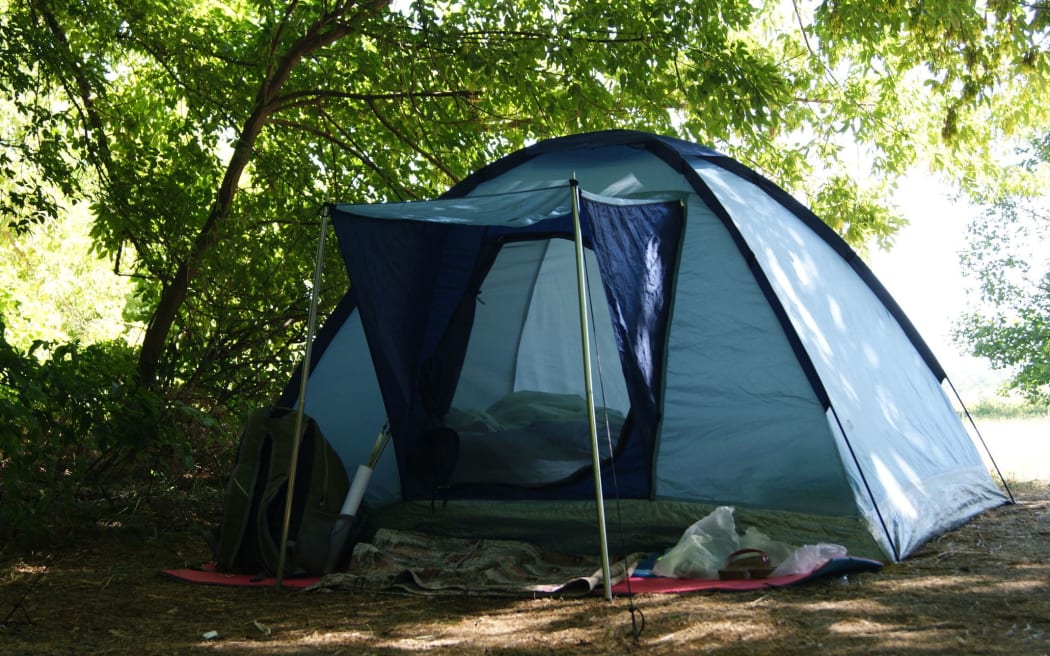
Photo: 123RF
An estimated 600,000 people are expected at holiday parks around the country next month, as people spend a second pandemic summer in New Zealand.
Business enthusiasm has been tempered by nervousness about the prospect of a coronavirus outbreak among campers who share communal areas like kitchens and toilets.
Up to 700 people are booked to stay at Northland's Mangawhai Heads Holiday Park next month, 90 percent of whom are Aucklanders.
Owner Richard Gunson has not received any official public health advice about how a potential Covid-19 case might be handled, but he said close contacts could not isolate in the park.
"I guess they're taking a wait and see approach, rather than let's be prepared," he said.
"We wouldn't have the facilities to isolate that number of people where they could only use one toilet, one shower. Unfortunately they would have to move."
Gunson said rules stipulating that Aucklanders must be fully-vaccinated and carry evidence of a negative Covid-19 test before they leave the city should help stop the virus spreading into camping grounds.
Tourism Industry Aotearoa chief executive Chris Roberts said it is not practical to send thousands of out-of-town campers home to isolate if they have to travel long distances.
"If there's an infectious case cropping up at a holiday park on New Year's Eve, what's supposed to happen? What do we do with those thousands of people? It's not going to be practical to either send them all home or lock them all down for a week or longer.
"We're keen to get greater guidance on just how we manage those situations."
Roberts said tourism operators have been told to contact their local health authorities, but they are still waiting for detailed advice.
Holiday Parks New Zealand chief executive Fergus Brown said every case is likely to be treated differently.
"An appropriate response for one case might be an inappropriate response for another. We have to monitor the situation very, very closely and work with the officials to make sure we look after our guests," he said.
His organisation has not received any briefings from public health officials.
Brown said holiday parks and camping grounds are still relatively safe places to stay because people spend most of their time outdoors.
Businesses hope high vaccination rates guard against coronavirus outbreaks, although some parks are accepting unvaccinated holiday-makers.
DHBs get prepared ahead of the holidays
The country's district health boards have been preparing for the possibility some tourists will not be able to quarantine where they are staying or go home.
Just two motel units have been set aside in Queenstown, even though tens of thousands of Aucklanders are expected to holiday there.
Queenstown Lakes mayor Jim Boult has asked the Southern District Health Board to arrange more accommodation for people who might need to isolate on holiday.
Boult said many hoteliers are anxious about what to do if a guest tests positive for Covid-19.
They do not want them to stay and risk exposing staff or other guests to the virus.
Nelson Marlborough Heath has set aside 21 separate areas, in places like motels, houses and campervans, catering for up to 51 people in Nelson and Blenheim.
It said more accommodation could be provided if required.
The Taranaki District Health Board said it has enough community isolation places - as thousands of Aucklanders prepare to fan out around the country.
It said it has combination of hotels, motels and hospital campus accommodation available to it in New Plymouth, Stratford and Hawera. It said it can support nine bubbles of up to 27 people.
But the Whanganui DHB refused to say how many community isolation beds it has available.
From 15 December, all people over the age of 12 must be fully-vaccinated to stay in Department of Conservation (DOC) huts and campsites.
The Green Lake DOC hut in Fiordland National Park was yesterday identified as a high-risk exposure site, after a potential positive case stayed overnight on 4 December.
